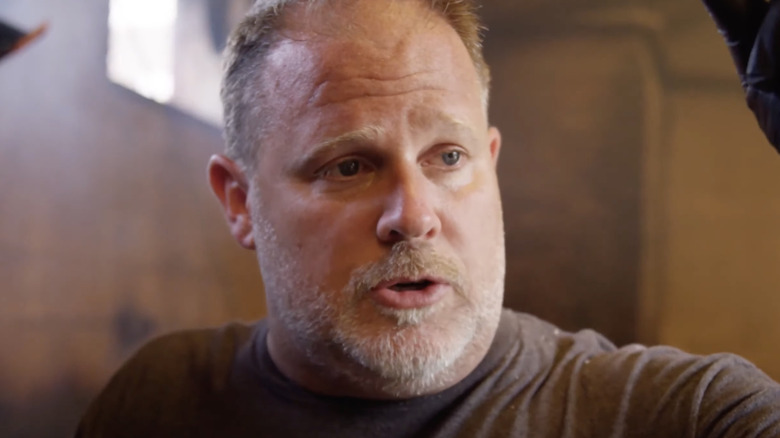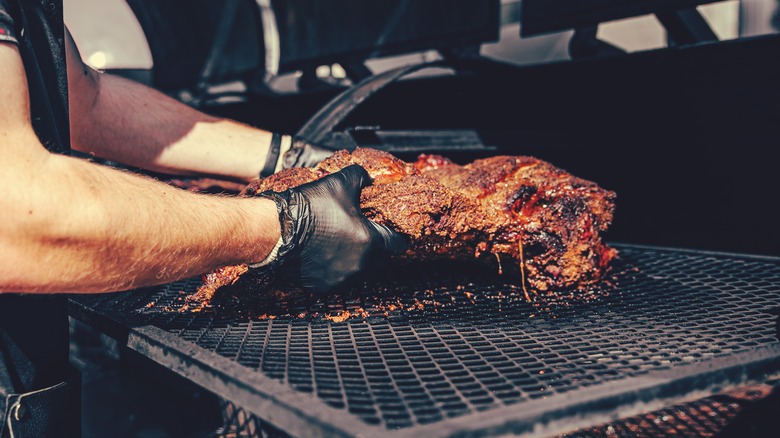The Difference Between Barbecue And Smoking, According To Pat Martin - Exclusive
For some pitmasters, the term "barbecue" can be used as a catch-all for all live-fire cooking. When we interviewed seven-time world barbecue champion Melissa Cookston, she told us that in her opinion, "If you're cooking on fire, even if it's gas-assisted, that's barbecue ... Barbecue can be used as a noun, a verb, an adjective, or an adverb, but I think it's all-encompassing of a type of cooking with fire."
However, other experts have more specific definitions. Tasting Table recently talked with Pat Martin, who owns Martin's Bar-B-Que Joint and several other restaurants, in an exclusive interview, and he said, "A lot of people conflate smoking with barbecue." While both smoking and barbecue involve cooking a protein over a live fire and flavoring it with smoke, for Martin, they're two different processes. When he says he's "smoking" a piece of protein, that means he's cooking it for a relatively short time to achieve a light smoke flavor. Barbecue, on the other hand, involves leaving a piece of meat on a pit or a smoker for a long period of time in order to transform its texture and give it a more robust taste of woodsmoke.
Choosing proteins wisely
Martin said that whether he chooses to smoke or barbecue depends on the nature of the meat he's cooking. Lighter, leaner proteins like mahi mahi do better with mild smoking. "It'll be a very delicate smoke, just enough to get a smoky flavor in [the fish]," he described. On the other hand, flavorful meats with lots of connective tissue are perfect for barbecuing. They need long cooking times to break them down and they can handle more flavor from the fire without being overwhelmed. "What I'm really looking for is muscle fiber, collagen, tough cuts of meat because I want that collagen to turn gelatinous over time," Martin revealed. The unctuous mouthfeel of properly cooked barbecue is the result of rendered collagen and gelatin in the meat, not melted fat. You don't need to hold yourself to traditional barbecue cuts like ribs and brisket; other robust proteins like lamb and bluefin tuna can make excellent barbecue too.
No matter whether you're smoking or barbecuing, Martin recommends having as light a touch with the smoke as possible. "Smoke is an ingredient to me, just like salt is. Smoke should always be ancillary," he explained. He then emphasized that you should cook with aged wood rather than fresh so the smoke doesn't become unpleasantly strong.
Martin's Bar-B-Que Joint has locations in Tennessee, Alabama, South Carolina, and Kentucky.

